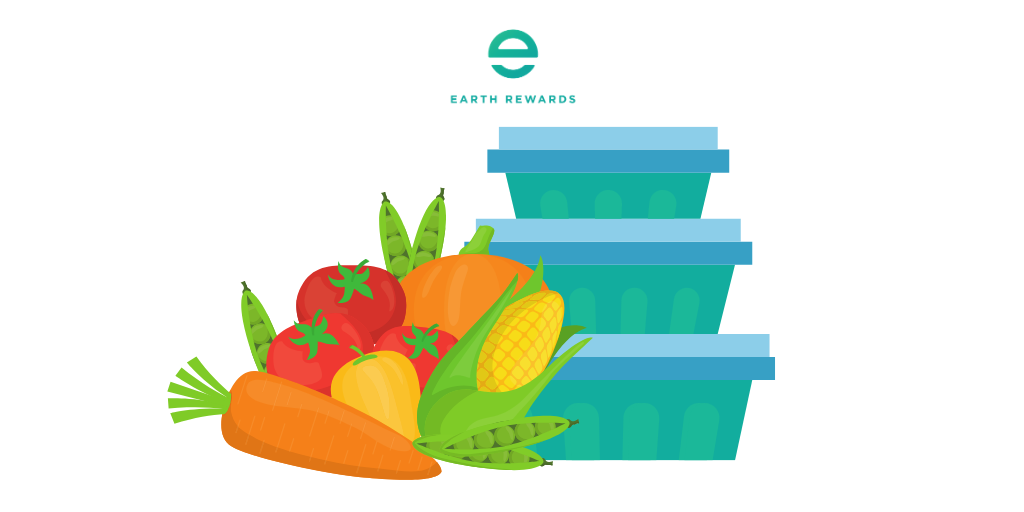Eco Food Storage: 7 Ways

Did you know that how you store your food impacts the environment?
From single use plastic or foil to how long that fridge door is open and creating food waste – the way we store food still has an effect on our carbon footprint.
The #zerowaste movement is taking the internet by storm with hacks for days but we’ve pulled out our top 7 to get you started:
1. Opening the fridge/freezer as little as possible
Keeping things you use regularly in easy reach limits the time that fridge door is open and extra energy is used to recool once shut – save your energy bill and the planet in one!
Subscriber Ally does this too:
“One thing I do is try and open the fridge and freezer when I need to, an example is grabbing or my dinner items in one go and reopen the fridge when returning or unfinished items like condiments, vegetables, leftovers, plant based milks and juice.”
2. Strategically pack your fridge
Don’t overpack the drawers and keep fresh veg like carrots and celery in airtight glass jars filled with water to help them keep longer and reduce your food waste.
Store root vegetables apart i.e. onions and potatoes as they gases they release make them spoil faster. Treat herbs as you would flowers and store them in a glass of water.
Cauliflower and broccoli stay fresh and crisp longer when in a re-sealable bag with a towel or paper towel to absorb any excess moisture.
3. Not putting warm things in the fridge/freezer
Leave leftovers to cool to room temperature before storing in a fridge or freezer, putting warm food in there means extra energy is used trying to regulate the inner temperature.
4. Storage Containers
Use glass tupperware and jars over plastic as it lasts indefinitely and can be recycled!
Try silicone stretch lids over single use cling film or plastic wraps to cover leftovers.
5. Re-usable food wrap instead of foil and clingfilm
For sandwiches, ditch tin foil and clingfilm – invest in re-usable food wraps – it’s a waxy cloth-like material that’ll keep your sarnies fresh til lunch!
Instead of plastic sandwich bags you can get re-usable silicon ziplock bags from Amazon or even biodegradable bags that can go in compost.
6. Repurposing waste
Glass jars, tins and even egg cartons can be repurposed as plant pots. Grow seedlings in egg cartons and succulents in tin cans. Tie a bow round your glass jar, fill with filtered water and you’ve got yourself a rustic flower vase!
7. Reducing food waste
Around ⅓ of all food produced goes to landfill, wasting the energy, water and labour involved in its production.
You can reduce your food waste by making soup from veg slightly past its best, freezing leftovers and veggies before they go off, shopping with only set meals in mind and starting a compost or wormery.
Storing your food properly will keep it fresh for longer and reduce your food waste too!
We’d love to hear about how you minimise your environmental impact in the kitchen! GetInTouch@EarthRewards.net
– ER Team

